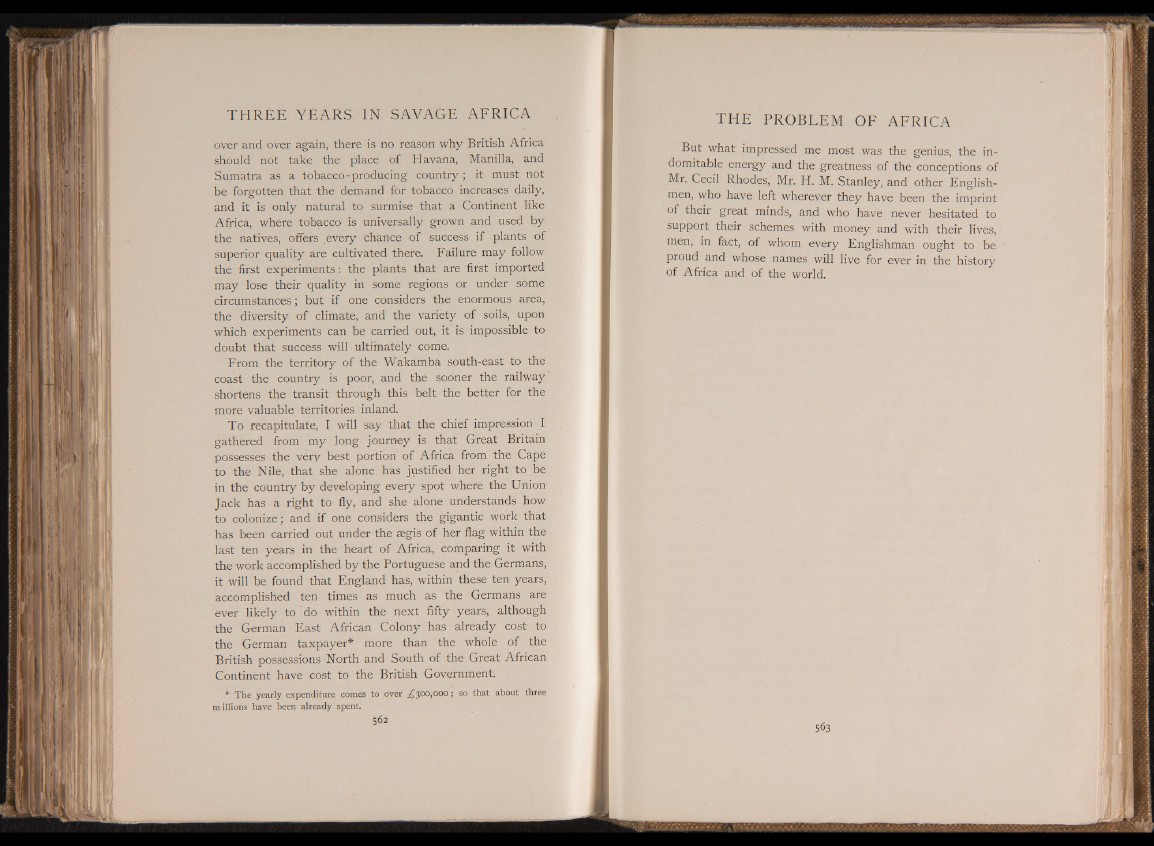
over and over again, there is no reason why British Africa
should not take the place of Havana, Manilla, and
Sumatra as a tobacco-producing country ; it must not
be forgotten that the demand for tobacco increases daily,
and it is only natural to surmise that a Continent like
Africa, where tobacco is universally grown and used by
the natives, offers xevery chance of success if plants of
superior quality are cultivated there. Failure may follow
the first experiments: the plants that are first imported
may lose their quality in some regions or under some
circumstances; but if one considers the enormous area,
the diversity of climate, and the variety of soils, upon
which experiments can be carried out, it is impossible to
doubt that success will ultimately come.
From the territory of the Wakamba south-east to the
coast the country is poor, and the sooner the railway
shortens the transit through this belt the better for the
more valuable territories inland.
To recapitulate, I will say that the chief impression I
gathered from my long journey is that Great Britain
possesses the very best portion of Africa from the Cape
to the Nile, that she alone has justified her right to be
in the country by developing every spot where the Union
Jack has a right to fly, and she alone understands how
to colonize; and if one considers the gigantic work that
has been carried out under the aegis of her flag within the
last ten years in the heart of Africa, comparing it with
the work accomplished by the Portuguese and the Germans,
it will be found that England has, within these ten years,
accomplished ten times as much as the Germans are
ever likely to do within the next fifty years, although
the German East African Colony has already cost to
the German taxpayer* more than the whole of the
British possessions North and South of the Great African
Continent have cost to the British Government.
* The yearly expenditure comes to over ,£300,000; so that about three
millions have been already spent.
But what impressed me most was the genius, the indomitable
energy and the greatness of the conceptions of
Mr. Cecil Rhodes, Mr. H. M. Stanley, and other Englishmen,
who have left wherever they have been the imprint
of their great minds, and who have never hesitated to
support their schemes with money and with their lives,
men, in fact, of whom every Englishman ought to be
proud and whose names will live for ever in the history
of Africa and of the world.